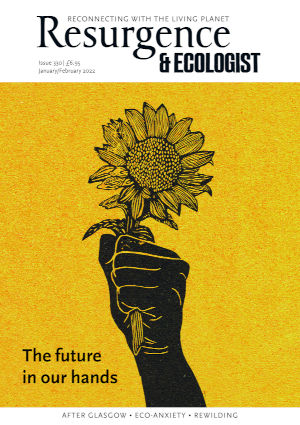Are we seeing an expansion of the notion of ‘politics’, still traditionally viewed as all about power, and wars of position over how to obtain it? That is the hope of the editors of this book, Matt Hawkins and Jennifer Nadel, who want to transform politics by placing practices of compassion at the very heart of it. It might be suggested that something like this was proposed by second-wave feminists, with their view that the personal is political. However, that understanding had the more specific goal of insisting that our intimate and domestic relations, how we care for others and feel about ourselves, are also political. The goal of this collection is more ambitious, and close to one I have also been engaged with in the Care Collective, leading us to publish The Care Manifesto (2020), attempting to place care itself front and centre of politics.
This anthology on ‘compassion’ comes from the political grouping Compassion in Politics, headed up by its editors. Its contributors are from diverse theoretical and activist backgrounds, all committed to compassion in politics. Some of its activist scholars in particular are a little more sceptical about achieving that goal, knowing the colossal hurdles we face after decades of pitiless austerity policies, soaring inequality, rising racism and the continuing neglect and disparagement of poor and vulnerable people.
However, the collection opens with hope, as Lord Dubs, that abiding knight of political compassion, suggests that the combined crises we now face – the refugee calamity, climate breakdown and the continuing Covid-19 pandemic – have brought us to a crossroads (the word of the moment). Surely we must now realise that it’s time to rethink all aspects of the kind of society we wish to build for future generations, or else face unprecedented calamity. It closes with similar hope from its editors, noting that compassion is a potential in all of us “and possibly the most powerful” one. In between there are some wonderfully informative essays on the significance of compassion, and why we need to build it, especially as historian Barbara Taylor and philosopher Anthony Grayling emphasise, accepting that we are essentially social beings. This means we must circulate our recognition of the inter-dependence of all people, and our shared interest in promoting reciprocity on every front.
Yet, as all the contributors emphasise, we are routinely taught the very opposite by our right-wing media, encouraging mechanisms of denial of any such recognition, teaching us to ignore, disdain or avoid anyone outside our chosen group, while urging a ubiquitous competitiveness. Thus Marina Cantacuzino, the founder of the Forgiveness Project to encourage post-conflict reconciliation, admits that “contempt for the outsider is now an everyday affair, spat out as much by politicians as the person sitting next to you on the tube.” But she remains committed to the power of storytelling as one of the most effective tools for creating a less hate-filled and divided society, enabling us to channel grief and regain personal agency following trauma. However, many sufferers will have little access to any form of trauma resolution, while selective, self-serving collective stories are routinely deployed to spread fear and resentment. This has led many to suggest that it’s not reconciliation and compassion, but anger and antagonism that are the defining emotions of our age.
Certainly, carelessness and cruelty are prevalent themes in many of the contributions. Writing on immigration policy, sociologist Ala Sirriyeh notes that the prospects for greater compassion there seem ever bleaker. However, she agrees that public mobilisation in support of asylum seekers does offer glimmers of hope, suggesting what could be a truly compassionate policy. Similarly, Pragna Patel, one of the founders of the long-lived Southall Black Sisters, emphasises that compassion will never be enough unless it can be “harnessed to a struggle against the unequal allocation of and abuse of power in our families, communities and state structures”.
This is an important book. My only reservation is that the optimism of its editors remains at odds with the pessimism generated by so many people’s continuing support for our current British government, still enabling market greed and encouraging antipathy to the vulnerable. Strategies for political change are crucial, accompanying our commitments to care and compassion.







